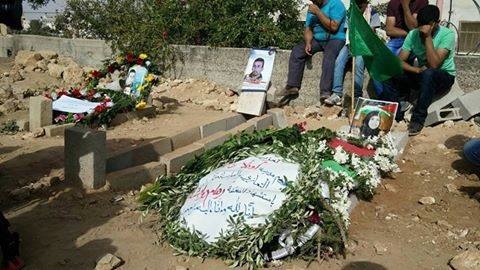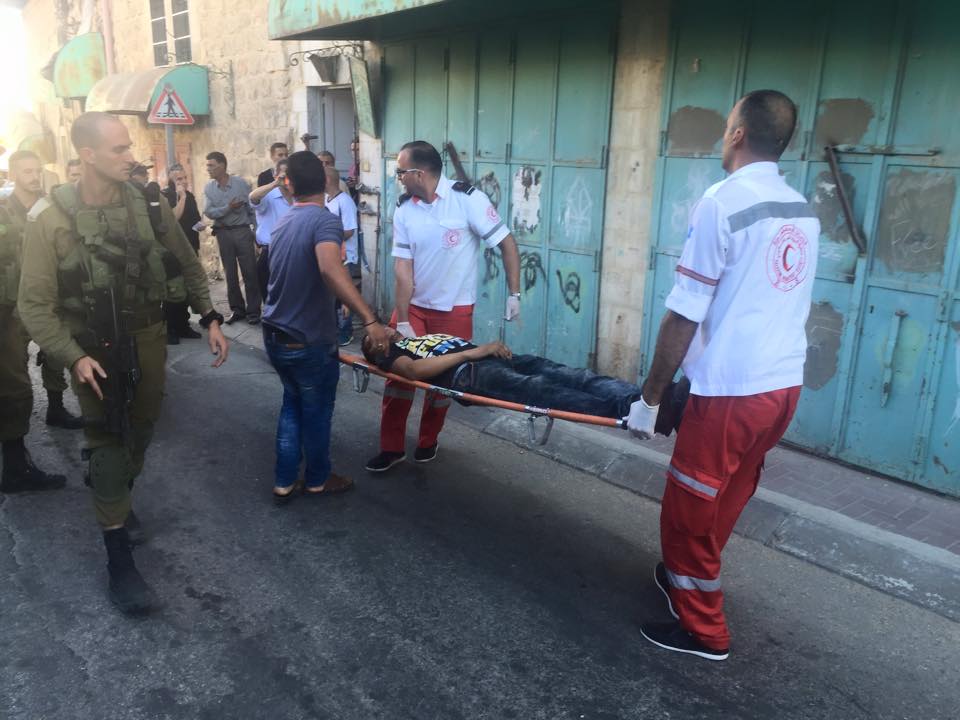Tag: Settlers
-
Reham Dawabshe’s funeral
8th September 2015 | International Solidarity Movement, Nablus Team | Duma, Occupied Palestine Yesterday, Monday 7th September, at approximately 1pm, thousands of people where waiting for martyr, Reham Dawabshe, to arrive to Duma to attend her funeral. After struggling for five weeks from severe burns all over her body, Reham Dawabshe died in the hospital.…
-
Settlers violently attack a Palestinian man on Shuhada-street
5th September 2015 | International Solidarity Movement, Al-Khalil Team | Hebron, occupied Palestine Tonight at around 6 pm a Palestinian man was detained at Daboya checkpoint in Shuhada-Street in Hebron in occupied Palestine. While he was detained a group of young settlers came to the checkpoint and attacked him. The 3 settlers were beating the…



